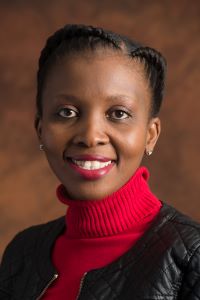
By Dr Ntombifuthi Nala
Every person regardless of who they are or where they live has the right to health. This right to health is defined by the World Health Organisation as a “complete state of physical, mental and social well-being, and not merely the absence of disease or infirmity”. The right to health is also enshrined in our Constitution, Section 27, which stipulates that everyone has the right to have access to healthcare services, including reproductive healthcare services.
However, this right to healthcare is not fully enjoyed and realised by everyone around the world. Some countries have not created conditions where everyone can access high quality health facilities. On 7 April every year, the World Health Organisation (WHO) observes World Health Day to address some of these challenges, in particular to encourage countries around the world to create the necessary conditions for everyone to enjoy that right.
It is also used to raise awareness about critical health issues facing the world and encourage people to improve their overall health and well-being. South Africa also joined the rest of the global community to commemorate the World Health Day, to raise awareness about the significance of addressing social determinants of health that influence access to quality healthcare. The key social determinants that are affecting the health status of individuals and communities, are education, good nutrition, housing, and employment.
The day is also used to reflect on progress made in making sure that everyone gets quality and affordable healthcare. Our government has since 1994 made strides in improving and increasing access to healthcare as well as the health status of citizens through the prevention of diseases and the promotion of healthy lifestyles.
A lot has also been done to strengthen the public health system, especially primary healthcare. Our interventions have resulted in the increase in life expectancy to 65 years in 2022.
This year’s World Health Day was commemorated under the theme “My health, My right” and talks to the goal of universal health coverage that South Africa is pursuing. In South Africa, universal health coverage means that all people, no matter where they live, or their financial status should enjoy access to quality and affordable healthcare. Our plans to achieve the universal health coverage are underway through the National Health Insurance (NHI).
The World Health Organisation has declared that our country runs one of the most expensive healthcare systems in the world. On the current trajectory, middle income households are likely to spend a third of their income on premiums for medical aid by 2030. This state of affairs is clearly unsustainable and as a nation, we have to find another way.
One way in which everyone can take care of his or her personal health is to adopt a healthy lifestyle. Citizens are encouraged to prioritise preventive measures and seek timely medical attention when necessary. We should also all take care of both our mental and physical wellbeing as it affects every facet of our lives. To do so, we can incorporate stress relieving activities in our lives, such as exercise, music, nature walks, meditation and journaling.
Dr Ntombifuthi Nala is Director: Research at GCIS

